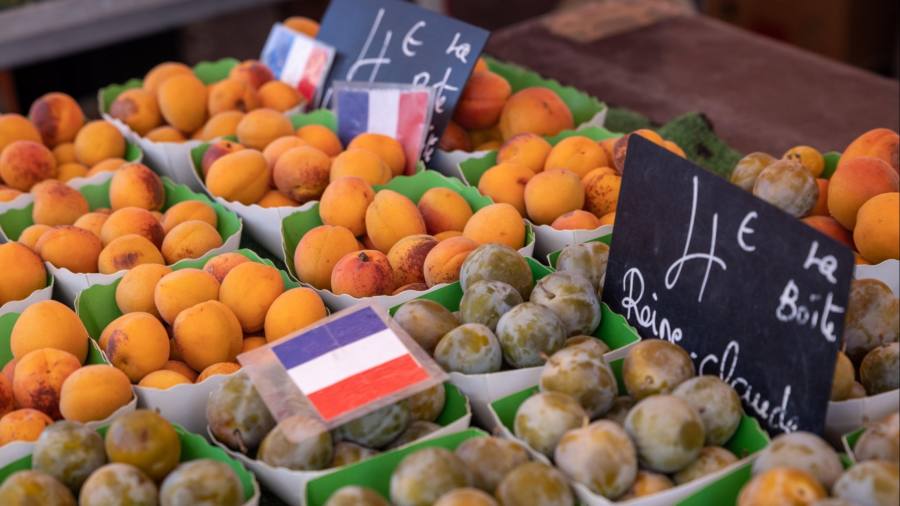French finance minister Bruno Le Maire has said that 75 food producers have pledged to lower prices by July following weeks of pressure from the government for companies to stabilise food prices.
The 75 producers committed to index prices to falling wholesale costs in a meeting on Thursday, and will also submit lists to the ministry next week of products that they will discount on the shelf in the short term, Le Maire said.
“All products whose prices on the wholesale markets are falling must fall in July,” Le Maire said in an interview on BFM TV on Friday.
“I’m thinking of pasta — the price of wheat is going down — I’m thinking of oils, I’m thinking of poultry, I’m thinking of cereals, I’m thinking of animal feed and a number of products which will be sent to me next week.”
He added that the authorities would conduct checks to ensure the producers stuck to their commitments. “Trust is good, verification is even better,” Le Maire said.
French food prices rose 14.1 per cent in the year to May, close to the eurozone average, and have overtaken energy as the region’s biggest driver of inflation, raising alarm among politicians and consumer groups. Some French food prices have risen faster: olive oil prices are up a quarter and eggs cost a fifth more.
However, some officials and retailers believe food producers are taking advantage of the surge in inflation to boost their profit margins by raising prices more than needed to cover higher energy and commodity costs.
The European Central Bank discussed this at its meeting in April, observing that although commodity prices were “falling steeply”, the prices paid by consumers for food “remained very sticky, suggesting that expanding profit margins were preventing inflation from falling”.
Le Maire has threatened to “name and shame” companies that refuse to participate in measures to reduce food prices and to levy a one-time “windfall” tax on producers if prices do not start coming down.
Most economists are confident the surge in food inflation has peaked after it fell for the past two months. In France, it has fallen from an annual rate of 15.9 per cent in March. But there is still uncertainty over how fast the surge in food prices will dissipate, and the impact of spiralling costs on consumers has been marked.
Overall food sales volumes in France are down as much as 4 per cent this year, according to a retail executive, meaning that “today, French citizens are eating 3 to 4 per cent less than a year ago” — with the impact disproportionately affecting the most vulnerable households.
Le Maire has also been pressuring producers to reopen commercial price negotiations between producers and retailers for the past month, but has encountered resistance from many big food groups that do not want to return to the table to renegotiate annual prices that were set in March.
According to Gerardo Martinez Garcia, an economist at French bank BNP Paribas, “lower commodity and energy costs and improved supply chains will dampen food inflation” but this would happen “only slowly”. He forecast eurozone food inflation would still be at 8 per cent at the end of the year and remain above 4 per cent in the first half of next year.
Read the full article here




